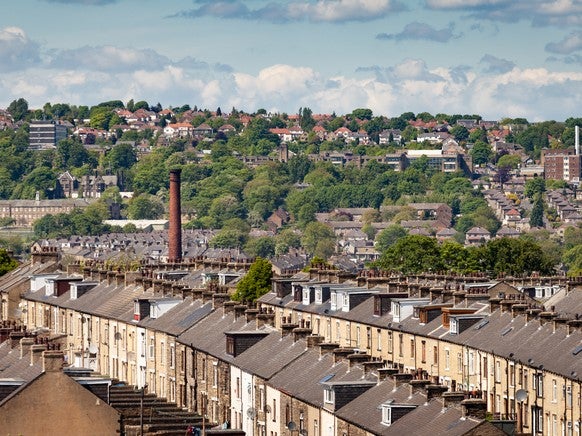‘A national scandal’: Poor children in north grow up to earn half that of poor children in south, research finds
Some families could be "locked into disadvantage" for generations.

Children from deprived families in the south of England are likely to grow up to earn twice that of their social counterparts in the north, a new report suggests.
Youngsters from poorer backgrounds in some parts of the south ended up, on average, on double the wages of their equivalents in many northern towns and cities, the research found.
“Put simply, two equally disadvantaged sons with the same family background will earn very different amounts as adults, based simply on where they grew up,” the report, from the Social Mobility Commission, concluded.
A deeply divided education system and lack of regional jobs were said to be the main causes of the imbalance.
It means some families could be "locked into disadvantage" for generations, the study said.
The findings, published on Tuesday, could be especially significant as the commission advises the government – and it is now urging more must be done to boost social mobility.
“Where you grow up matters,” the report continued. “In areas with the highest social mobility, disadvantaged individuals aged around 28 earn more than twice as much as their counterparts in areas of lowest mobility, over £20,000 compared with under £10,000.”
The study – compiled by the Institute for Fiscal Studies and University College London – looked at income and tax records for boys born between 1986 and 1988 whose families were counted as poor because they qualified for free school meals. It then followed them up to the age of 28.
Of the best 15 areas for social mobility – from a total of more than 300 – 14 were in the south.
Life chances were best for disadvantaged children in places including East Hertfordshire and Wokingham in Berkshire.
Bradford, Hartlepool, Sheffield and Hyndburn in Lancashire were among the worst performing places – although so too was West Devon in the south.
Responding to the findings, Susan Hinchcliffe, the leader of Bradford City Council — where the average wage of those examined was just £9,500 — said: "I think it’s a national scandal that you can be disadvantaged in life from birth depending on your postcode.”
Henri Murison, director of the Northern Powerhouse Partnership, added: “The challenge of poor social mobility is a result of the educational and wider barriers to opportunity in many communities, with three quarters of the least socially mobile areas in England in the Northern Powerhouse."
A government spokesperson said: "Now more than ever, our focus is on levelling up the opportunities available to every young person in this country and we will do everything possible to make sure no-one is left behind as a result of the impact of the coronavirus pandemic."
The report focused solely on men, the commission says, because data for female earnings would not have been comparable across areas due to many women leaving the labour market, fully or partially, by the age of 28.
Join our commenting forum
Join thought-provoking conversations, follow other Independent readers and see their replies
Comments
Bookmark popover
Removed from bookmarks